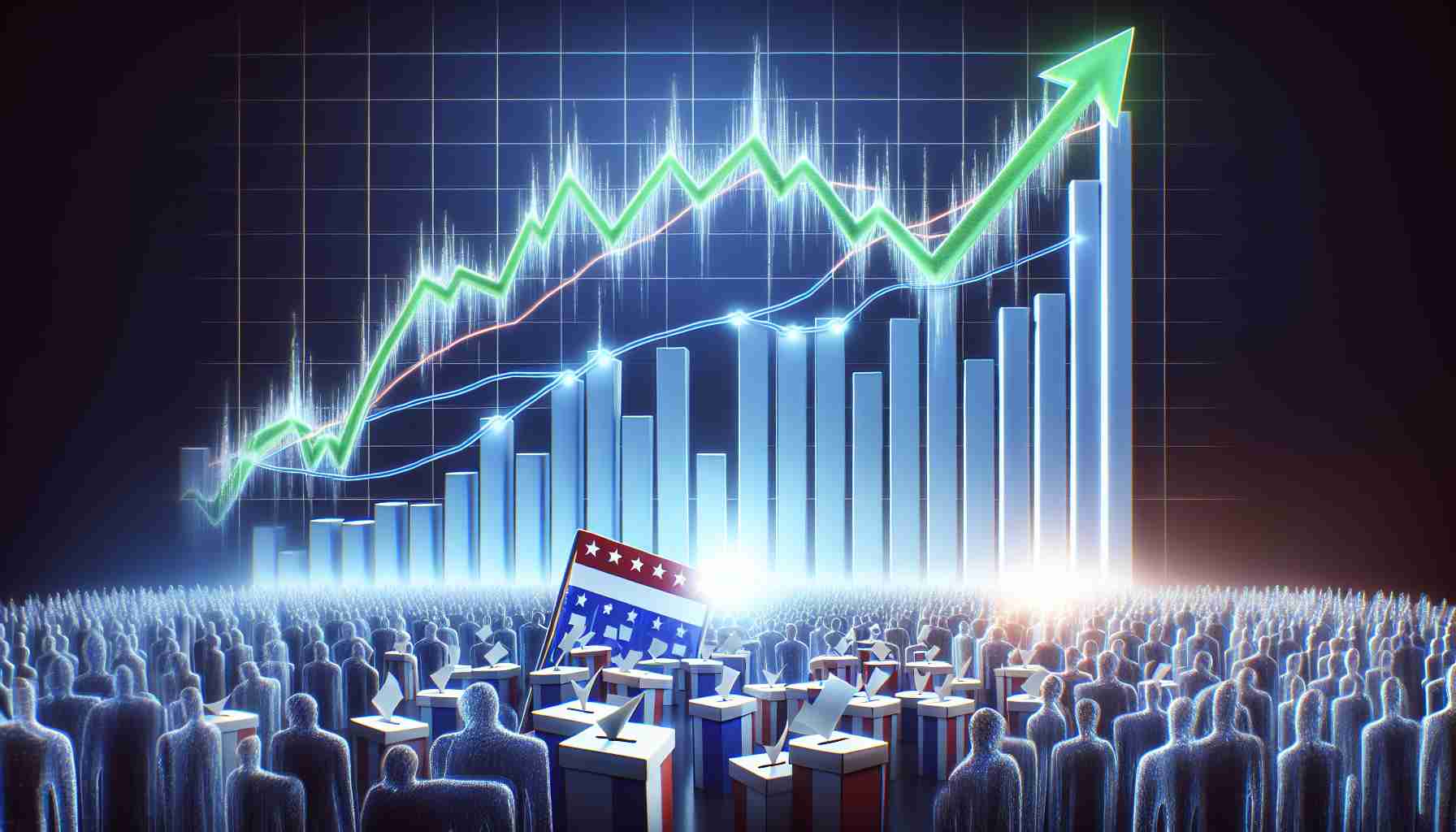Recent analyses of the U.S. presidential election trends since 1976 reveal that certain economic indicators can significantly forecast electoral outcomes. Among the various factors, inflation rates and job growth stand out as the most effective predictors of which party might claim victory in the White House.
Researchers have examined wide-ranging economic data over nearly five decades, pinpointing inflation as a crucial element influencing voter sentiment. A rise in inflation generally corresponds with discontent among the electorate, potentially shifting support toward the opposition party. Additionally, robust job growth tends to bolster the incumbents’ chances, as a favorable employment landscape fosters public approval.
The relationship between economic conditions and electoral success cannot be overstated. Political analysts suggest that when voters perceive their financial situations positively, they are more likely to support the administration in power. Conversely, negative economic trends may prompt calls for change, making it essential for candidates to address these issues actively.
As the election approaches, candidates are expected to heavily focus on their economic policies to resonate with voters. Economic health, as demonstrated by these indicators, plays a pivotal role in shaping the political landscape, guiding the public’s decisions at the polls. Observing these trends offers valuable insights into the potential outcomes of future elections, underlining the significance of economic stability in the political arena.
Understanding Election Trends: Tips, Life Hacks, and Interesting Facts
As we delve into the intricate interplay of economics and electoral outcomes, it’s essential to arm yourself with useful tips, life hacks, and intriguing facts that can enhance your understanding of this dynamic relationship. Here are some insights to keep in mind as we navigate the political landscape.
1. Stay Informed on Economic Indicators
One of the best ways to understand how elections may unfold is to stay updated on key economic indicators such as inflation rates and job growth. Following reliable financial news sources can provide you with timely data that reflects voter sentiment. Websites like npr.org offer comprehensive coverage that connects these economic conditions with political developments.
2. Understand the Cycle of Voter Sentiment
Voter sentiment is often influenced by the state of the economy. When times are good, incumbents are likely to gain favor, while economic downturns can lead to shifts in support. Familiarize yourself with historical trends by exploring academic articles or reports that detail how shifts in the economy affected past elections.
3. Engage with Local Economic Discussions
Participate in local discussions or forums focused on economic issues. Engaging with community members can provide insights into how economic policies impact everyday lives, making it easier to gauge the mood of the electorate as elections approach. Check platforms like meetup.com for local events.
4. Leverage Economic Trends for Your Personal Finances
Understanding economic trends can also help you make better personal financial decisions. For example, if inflation is rising, consider locking in fixed-rate loans to avoid higher interest costs later. This proactive approach can serve as a valuable life hack for your finances.
5. Track Candidates’ Economic Policies
As elections near, candidates will outline their economic policies. Keep a close watch on these policies, as they are crucial in shaping public perception. Websites like ballotpedia.org provide up-to-date information on candidates’ platforms, allowing voters to make informed decisions.
Interesting Fact: The History of Economic Influence on Elections
Did you know that the year 1980 saw a significant shift in voter behavior due to rampant inflation? Many voters turned against the sitting president, Jimmy Carter, largely due to dissatisfaction with the economy. This historical example emphasizes the recurring theme of economic dissatisfaction’s role in electoral change.
6. Keep an Eye on Social Media Trends
Social media can be a powerful tool for gauging public sentiment regarding economic conditions. Following hashtags related to the economy or elections can provide immediate reactions and opinions, giving you a sense of how the electorate is feeling.
7. Attend Economic Workshops or Webinars
Increasing your knowledge of economic fundamentals can empower your decision-making during elections. Check out online platforms like coursera.org, where you can find workshops that connect economic principles to political realities.
In conclusion, understanding the correlation between economic conditions and electoral outcomes not only prepares you for upcoming elections but also enhances your overall financial literacy. By remaining informed, engaging in dialogues, and leveraging resources, you can navigate the political landscape with greater confidence.
